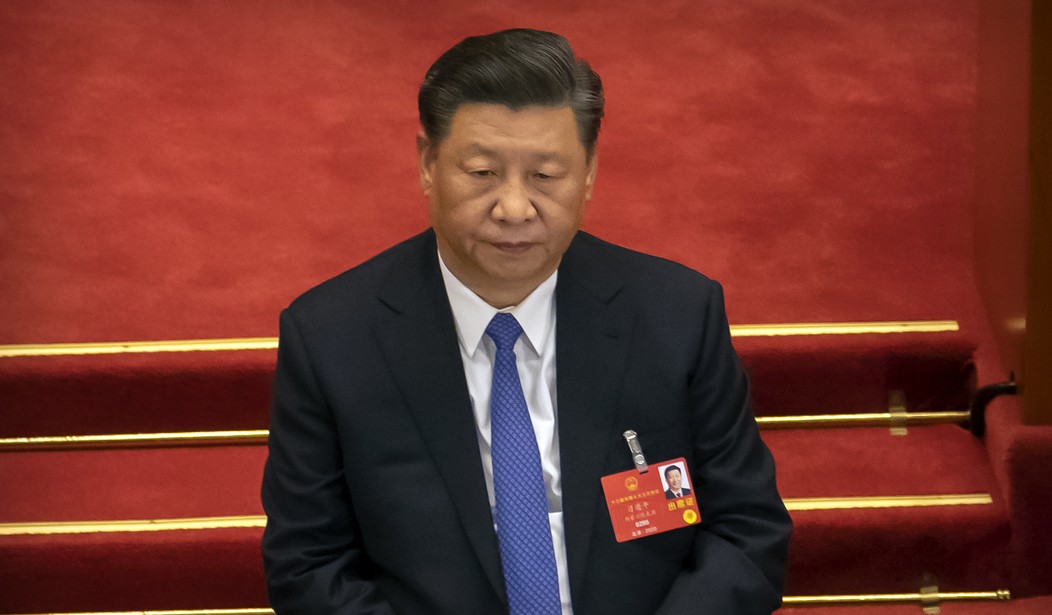First COVID-19, and now possibly Taishan. China’s claims to competence in cutting-edge science appears on the verge of tatters if reports about a nuclear accident at its reactor turn out to be true. CNN reports that a French company partnering at the Taishan nuclear power plant took the highly unusual step of notifying the US about what they called an “imminent radiological threat.”
Thus far China’s government has remained silent about the accusation, although the Taishan facility denies it:
The US government has spent the past week assessing a report of a leak at a Chinese nuclear power plant, after a French company that part owns and helps operate it warned of an “imminent radiological threat,” according to US officials and documents reviewed by CNN.
The warning included an accusation that the Chinese safety authority was raising the acceptable limits for radiation detection outside the Taishan Nuclear Power Plant in Guangdong province in order to avoid having to shut it down, according to a letter from the French company to the US Department of Energy obtained by CNN.
Despite the alarming notification from Framatome, the French company, the Biden administration believes the facility is not yet at a “crisis level,” one of the sources said.
While US officials have deemed the situation does not currently pose a severe safety threat to workers at the plant or Chinese public, it is unusual that a foreign company would unilaterally reach out to the American government for help when its Chinese state-owned partner is yet to acknowledge a problem exists. The scenario could put the US in a complicated situation should the leak continue or become more severe without being fixed.
Did Framatome ask for help? Not exactly. Framatome needed to get waivers from the US to help repair whatever may have been broken. One energy analyst on Twitter stated that Taishan’s ownership, CGN, is on the US sanctioned entities list, which would complicate Framatome’s business in the US. They needed waivers to use technologies that are barred from transfer to China under normal circumstances:
4)
So doesn't sound like Framatome reached out for *help* per se. Rather, they reached out for approval to conduct work to fix/mitigate the problem.If there's no safety threat, as this paragraph starts, then the rest is just silly, superfluous, and alarmist: pic.twitter.com/PWgbIUsBVG
— David Fishman (@pretentiouswhat) June 14, 2021
Apparently that’s precisely what happened, but it’s a bit more urgent than this analysis credits:
The company, mainly owned by EDF, the French utility company, then submitted an operational safety assistance request on June 3, formally asking for a waiver that would allow them to address an urgent safety matter, to the Department of Energy, warning American officials that the nuclear reactor is leaking fission gas.
The company followed up with DOE on June 8 asking for an expedited review of their request, according to a memo obtained by CNN.
“The situation is an imminent radiological threat to the site and to the public and Framatome urgently requests permission to transfer technical data and assistance as may be necessary to return the plant to normal operation,” read the June 8 memo from the company’s subject matter expert to the Energy Department.
So even if it’s the case that this is not an overt cry for help, the problem must have been at least unusually acute. Otherwise Framatome wouldn’t have needed to get a waiver from the US at all. They’ve been operating the plant for years in partnership with China without our assistance or intervention. So why start now?
Beijing has been very quiet about the situation, but Taishan insists everything is okay:
China’s Taishan Nuclear Power Plant said accusations of dangerous levels of radiation leakage at the facility were untrue, claiming that its two reactors were operating normally as its French partner said it called for a meeting with its Chinese counterpart to resolve a “performance issue” at the plant. …
“Recently there have been some agencies and media organizations paying attention to and inquiring into the situation at the Taishan Nuclear Power Plant,” CGN, the operator of the plant, said in a statement on its website Sunday evening, before the CNN report was published.
CGN said the first of its two EPR (Evolutionary Power Reactor) nuclear reactors was operating normally while the second had completed a planned overhaul, the facility’s first since operations began, and was connected to the power grid on June 10. The plant said the overhaul had met all targets in “safety, security, quality and project time.”
“All operating indicators of the two units have met the requirements of nuclear safety regulations and technical requirements for power plants,” it said. CGN said it had not detected unusual amounts of radiation inside or outside the plant, adding that “environmental indicators at present are within their normal range for both the Taishan plant and its surrounding environment.”
Initially the Soviets denied any problems in Chernobyl, too. If everything was hunky-dory, their French partners wouldn’t have needed emergency waivers from the US, nor would they have risked their investment by asking for those without a pretty substantial reason. The one thing we can say for sure, especially after COVID-19, is that China will say and do practically anything to control the narrative and to keep from exposure of its own deficiencies. Stay tuned.








Join the conversation as a VIP Member